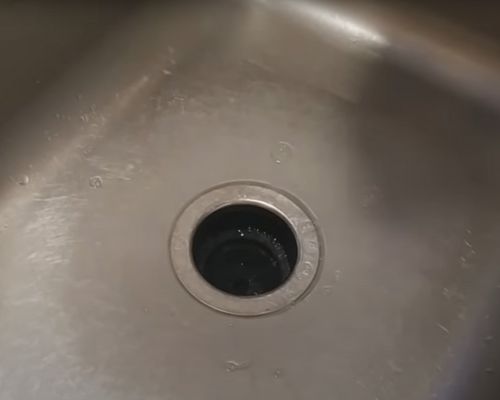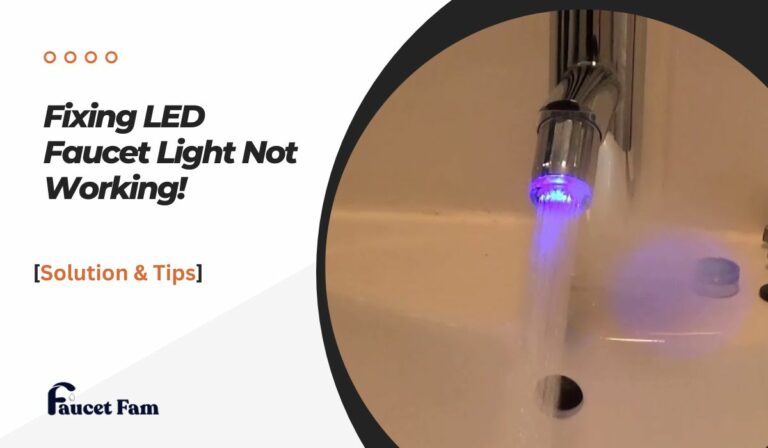What To Do When Your New Faucet Water Smells Bad?
There’s no better feeling than finishing the installation of a new faucet. But that joy can be short-lived when you start getting a foul odor after turning the handle. And it can definitely make you wonder why your new faucet water smells bad.
The water from the new faucet can smell bad due to the plastic piping. It could also be due to chlorine, bacteria, or organic matter buildup within your supply line.
Now, the main question is, how to fix a smelly water faucet? Do you need to work with the whole supply line? You can get all the details regarding the topic in this discussion. So, keep on reading!
What Causes Smelly Water from Faucets?
Having no water in the kitchen sink is one thing, and getting smelly water from the new faucet is another. To be exact, you may think that the first is better than the latter.

Nonetheless, before discussing the fix, let’s explore the cause a bit more. After all, having a proper idea of the source will make it easier for you to take the correct troubleshooting steps.
And to identify the source of the smell, you need to analyze the odor itself.
1. Sewage or Sewage-Like Odor
There are mainly two reasons why you might get sewage or sewage-type smell for the new faucet. Firstly, it could be due to bacteria buildup within the water heater system. Now, what would cause that to happen?
Bacteria buildup in the water heater tank generally occurs when you do not use it for a while. The stagnant water within the tank encourages the growth of bacteria, which eventually flow through the faucet.
Secondly, you can get a sewage odor if your water well is next to a septic system. The water from the septic system might be overflowing and getting into the well. And that would eventually make your faucet water smell bad.
2. Chlorine Smell
If you are getting a chlorine odor, it goes without saying that chlorine got mixed with your supply line water. And this is not as alarming as other smells because public drinking water supplies typically mix chlorine into the water. Wondering why?
Chlorine acts like a disinfectant and gets rid of the microbiological contaminants in the water. In general, chlorine used as a disinfectant inside the water should not have a noticeable smell.
So, if you get a chlorine smell from the new faucet, there is likely a chlorine buildup within the pipes.
3. Rotten Egg Smell
Getting a rotten egg odor from the new faucet? No, the water pipes do not have eggs rotting inside them! Instead, the water got contaminated with sulfur. Yes, sulfur smells exactly like rotten eggs.
That said, there could also be sulfur bacteria within the water line. They, too, have the same rotten egg smell.
4. Musty Odor
Bacterial or algal growth within your pipes makes your new faucet have a musty smell. Typically, these bacteria or algae are not much of a health threat. However, the scent can indeed get pretty intense, which can be very inconvenient.
5. Fishy Smell
There are two big reasons why you may get a fishy smell from the water of the new faucet. Firstly, it could be due to the water having chloramine. At the core, it is a disinfectant, which municipal water supplies generally rely on.
Secondly, it could be due to the buildup of organic matter. For example, the line might have leaves and plants that are decaying. But chloramine is likely the culprit, as leaves and plants generally can not get inside closed water pipes.
6. Metallic Smell
Getting a metallic smell and taste from the new faucet? Your water supply lines have corroding copper, zinc, manganese, or iron! Even a tiny amount of these metals can make the faucet give out metallic-smelling water.
How Do I Get Rid of Smelly Faucet Water?
Wondering how do I fix smelly tap water? Well, the fix is simpler than our DIY faucet installation guide. Take a look –
1. Check the water supply system and disinfect it
Before anything else, close all the shut-off valves of the faucets and the main water valve. Add hypochlorite or chlorine solution to the water supply system or well and leave it like that for six to twelve hours.
After that, open all the shut-off valves and drain the water from the water supply system or well. Let it fill with fresh water by opening up the main valve, and then drain the water through all the faucets.
2. Use activated carbon
If you are mainly dealing with a chlorine smell, activated carbon can help. It can also help in keeping your water supply system free of bugs. You just need to put the pellets in your water system.
3. Install a whole-house water purification system (optional)
A whole-house water purification system is costly. Even the basic systems range from $300 to $800. But if you can afford it, the purification system will work like a charm in keeping the faucet water from smelling bad.
Can a Stuck Kitchen Faucet Diverter Cause Bad Smelling Water?
A malfunctioning kitchen faucet diverter can indeed lead to unpleasant odors in your water supply. If the diverter gets clogged or stuck, it can disrupt the proper flow of water, causing stagnant water to gather. This stagnant water can develop bacteria and produce a foul smell. Prompt kitchen faucet diverter troubleshooting is necessary to fix the issue and restore fresh, odor-free water.
Is the Smell Still There? Here’s What You Can Do
Gone through all the steps mentioned above and still found the water to be smelly? In that case, you can do the following –
1. Eliminating Musty, Rotten Egg, and Sewage-like Smell
As discussed earlier, you are dealing with bacterial growth if your new faucet gives out a musty, rotten egg or sewage-like smelling water. Go through these steps to fix this issue –
2. Getting Rid of Fishy, Metallic, and Chlorine from the New Faucet
The main reason for the fishy, metallic, and chlorine smell is generally the disinfectants that the city water supply uses. To get rid of it, you can follow these steps –
Final Words
That’s pretty much everything about what you need to do when the new faucet water smells bad. In short, it becomes easier to determine the issue’s source.
And as discussed, the water might not be an issue in some cases. Instead, it will b the drain pipe. For those cases, disinfecting the drain should let you get rid of the frustrating smell.

